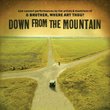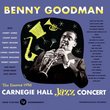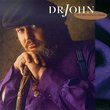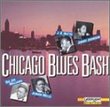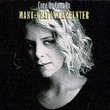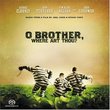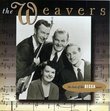| All Artists: John Lee Hooker Title: Don't Look Back Members Wishing: 0 Total Copies: 0 Label: Virgin Records Us Original Release Date: 3/4/1997 Release Date: 3/4/1997 Genres: Country, Blues, Pop Styles: Classic Country, Contemporary Blues, Delta Blues, Traditional Blues, Electric Blues, Modern Blues, Vocal Pop Number of Discs: 1 SwapaCD Credits: 1 UPC: 724384277123 |
Search - John Lee Hooker :: Don't Look Back
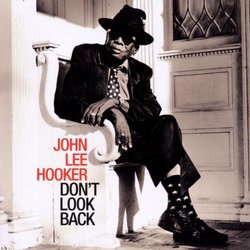 | John Lee Hooker Don't Look Back Genres: Country, Blues, Pop
Don't Look Back, originally released in 1997, was co-produced by Van Morrison, who also duets with Hooker on four tracks. The album contains newly recorded versions of Hooker classics, as well as some new songs and two ... more » |
Larger Image |
CD DetailsSynopsis
Album Description Don't Look Back, originally released in 1997, was co-produced by Van Morrison, who also duets with Hooker on four tracks. The album contains newly recorded versions of Hooker classics, as well as some new songs and two bonus tracks. Los Lobos appear on a storming version of "Dimples," and Hooker takes on Hendrix with a cover of "Red House." The album won two GRAMMY Awards: Best Traditional Blues Album and Best Pop Collaboration with Vocals for the title track, with Van Morrison. Remastered with 2 bonus tracks. Similar CDs
Similarly Requested CDs
|
CD ReviewsSome Fine Blues... Curtis J. George | 03/27/2004 (5 out of 5 stars) "This is Hooker's latest original recording and the last one before he died in 2001. I have to say it's quite different from most Hooker recordings I've heard. It is very important to note that this CD is one big collaboration with Van Morrison, and the blues you'll hear here (with the exception of the first track) are mellow, laid back, and smooth. It's an excellent recording, although more mainstream than the real raw Hooker that can be heard on earlier recordings. He's aged like fine wine, and at about 80 years old, I'd say he's holding his own with amazing class :)If you're new to Hooker, start either with this CD or "Healer". Healer is also an excellent recording (it does, however, have a lot more guest musicians). On this disk, you hear a more diluted Hooker, but you need to hear this before you hear the real raw Hooker.The first track with Los Lobos is excellent - makes you want to get up and dance. Second and Fourth track are duets with Morrison and are both excellent work. Red House is a take on a Hendrix classic, and while the guitar work can't compare to the Hendrix guitar, the vocals, I thought, are a lot better, grittier, more bluesy than Hendrix's own version. Get it - you won't regret it." Artistry and innovation, what Johnnie Lee was Tony Thomas | SUNNY ISLES BEACH, FL USA | 11/03/2004 (5 out of 5 stars) "Like too many blues artists, Hooker tends to be reduced to a primitivist stereotype. Rather than being a creative artist whose depth of spirit, intellect, music and poetry create a new power and product with his music, he is misinterpreted as some kind of relict of an older or truer blues tradition. Rather than a real artist, he is dehumanized as the real thing! Nothing could be further from the truth. Nothing could minimize his artistry more. Hooker's music falls into the generation of the R & B bluesmen of the late 1940s who brought the stream of music from the Delta--Johnny Lee being from Clarksdale--to the North, Muddy Waters to Chicago, Johnny Lee to Detroit. Johnny's music, particularly his music from the late 1940s and 1950s when he was popular not among white ex folkies or whites who think they love the blues, but in the Black community, is impossible to understand outside of the context of postwar R & B, not the initial delta blues. The dance rhythm that proceeds from Boogie Chillun, King Snake, Boom Boom Boom, wouldn't have worked in a 1920s Juke Joint. It belongs someplace like Henry's Swing Club where a rockin' rhythm is coming from the attempt to combine the power of swing with the rock of the blues that created R & B in the 1940s. Hooker was a highly sophisticated musician who developed his own off-shoot from the traditional trajectory of blues artists. Starting with the great female blues stars and Blind Lemon Jefferson, the direction of blues has been to harmonize the essential modal African-based musics of the blues. Hooker took the music in an entirely different method, by returning to the modal base of the music. To do so he essentially goes away from the tendency of blues musicians to develop the music into a band music. He solves the problem of filling the sound that had become expected without the harmonizing basis for different instruments to work together in a band by technological innovation, not tradition. He was the first bluesman to take full advantage of the ability of electric guitars and amplifiers to do more than make the sound of a guitar louder. He used the settings on guitar, amplified, and recording studio to create a new and different sound, and used the amplification to fill the spaces in the music others would need bands to fill. This decision was really in the vanguard of the electric guitar revolution in blues, rock, country, and all popular music that exploded in the 1950s and has yet to end. Hooker with accompanying musicians and bands. Some of the best sides came when he was recorded not with other blues players but with some of the top Jazz players in the late 1950s. His modal music, excellent timing, free form improvisation and general cool made his records sell not only among blues players but Jazz lovers back in the day. This speaks to how advanced his rhythmic sense really was. There was also a confluence between Hooker and some of the most advanced Jazz players of the late 1950s and 1960s who sought similar modal solutions to the problems of jazz improvisation. Get this, and then get everything else Hooker Did. My favorites are the recordings Hooker did in the late 1940s and early 1950s aimed at an R & B audience as well as the sides he did in the 1960s for Vee-Jay a Black owned record company that produced him as a quality artist with great soundwork and free selection of his material. Hooker is really an electric artist, so some of the sides cut during the 1960's "folk revival" where he's made to play an acoustic are kind of an insult to his artistry and history, though like everything Hooker did,they were great music. " GET IT DON'T REGRET IT enfirno | 10/05/2003 (5 out of 5 stars) "As a late convert to JLH's music, I like this a lot. More than the Healer actually.To sound this good at his age is like sipping a fine vintage wine. Long live Hooker!"
|

 Track Listings (11) - Disc #1
Track Listings (11) - Disc #1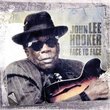
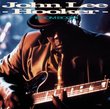
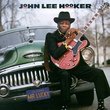
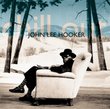
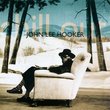
![Sly & the Family Stone - Greatest Hits [Epic]](https://nationalbookswap.com/cd//m/63/8263/18263.jpg)
